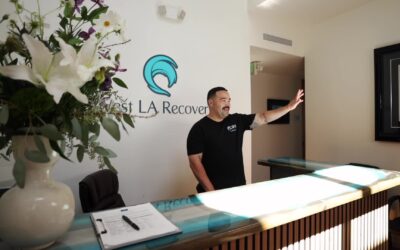1. Cognitive Behavioral Therapy (CBT)
Cognitive Behavioral Therapy (CBT) is a widely used approach in addiction treatment. It focuses on understanding and changing negative thought patterns that contribute to substance use.
How CBT Works
CBT helps individuals identify the relationship between their thoughts, emotions, and behaviors. By recognizing these connections, individuals can gain insight into their addictive behaviors and develop healthier coping mechanisms.
Key Components of CBT in Addiction Treatment
- Identifying triggers and high-risk situations
- Developing effective coping strategies
- Enhancing problem-solving skills
- Creating personalized relapse prevention plans
Benefits of CBT for Recovery
Research has shown that CBT can be highly beneficial for individuals in recovery. Some of the key benefits include:
- Reduced cravings and improved control over impulses
- Enhanced ability to manage stress and difficult emotions
- Increased self-awareness and emotional regulation
- Improved communication skills and relationships
Long-Term Effects of CBT
One of the significant advantages of CBT is its lasting impact even after the treatment period. Studies have found that individuals who complete CBT programs continue to experience positive outcomes, such as sustained recovery rates, up to 12 months or longer after finishing treatment.
The skills learned during CBT sessions become valuable tools for navigating everyday challenges and maintaining sobriety.
Practical Strategies for Recovery
CBT provides practical techniques that individuals can start using right away in their recovery journey. These strategies empower individuals to:
- Challenge negative thoughts and beliefs
- Replace self-defeating thinking patterns with realistic alternatives
- Develop healthier coping mechanisms for dealing with stressors
If you’re interested in learning more about CBT or would like assistance with your recovery process, feel free to reach out through our contact page.
2. Dialectical Behavior Therapy (DBT)
Dialectical Behavior Therapy combines traditional cognitive techniques with mindfulness practices to create a powerful treatment approach for addiction. DBT helps you develop skills to manage intense emotions and reduce impulsive behaviors that often trigger substance use.
The Core Components of DBT
The core components of DBT include:
- Individual Therapy Sessions: One-on-one meetings with a therapist to address specific challenges and develop personalized coping strategies
- Skills Training Groups: Learning practical tools for mindfulness, distress tolerance, emotion regulation, and interpersonal effectiveness
- Phone Coaching: Access to therapist support between sessions for crisis management
- Consultation Teams: Therapists work together to provide the best possible care
How DBT Works
DBT teaches you to accept your emotions while making positive changes through:
- Mindful observation of thoughts without judgment
- Building tolerance for difficult situations
- Creating healthy relationships with others
- Regulating emotional responses effectively
The Impact of DBT on Addiction Treatment
Research shows DBT significantly reduces relapse rates in addiction treatment. A study in the Journal of Clinical Psychology found that participants who completed DBT showed a 64% reduction in substance use compared to traditional treatment methods.
The mindfulness component of DBT helps you develop awareness of triggering situations and emotional states that lead to substance use. This awareness, combined with practical coping skills, creates a strong foundation for long-term recovery.
3. Motivational Interviewing (MI)
Motivational Interviewing (MI) is a powerful counseling approach that helps you discover your internal drive for change. This client-centered method acknowledges the natural uncertainty about changing addictive behaviors and transforms it into a catalyst for recovery.
Techniques Used in MI
MI counselors use specific techniques to guide you through the change process:
- Open-ended Questions: “What changes would you like to see in your life?” These questions encourage deeper self-reflection and meaningful dialogue
- Reflective Listening: Your counselor mirrors your thoughts and feelings, helping you gain clarity about your motivations
- Affirmations: Recognition of your strengths and efforts reinforces your confidence in making positive changes
- Change Talk: The counselor helps you identify and strengthen your own reasons for change
Effectiveness of MI in Addiction Treatment
Research shows MI’s effectiveness in addiction treatment:
- 75% reduction in substance use among participants
- Increased treatment retention rates
- Higher success rates when combined with other therapeutic approaches
Key Stages of the MI Process
The MI process unfolds through four key stages:
- Engaging: Building a therapeutic alliance
- Focusing: Identifying specific goals for change
- Evoking: Drawing out your personal motivations
- Planning: Developing concrete steps toward recovery
Benefits of MI
MI creates a non-judgmental space where you can explore your relationship with substances and discover your path to recovery. This collaborative approach empowers you to make informed decisions about your health and future.
4. Rational Emotive Behavior Therapy (REBT)
Rational Emotive Behavior Therapy (REBT) focuses on addressing the irrational beliefs that drive addictive behaviors. This therapeutic approach assists you in identifying and challenging self-defeating thoughts that contribute to substance use.
The ABCDE Framework
The core of REBT is based on the ABCDE framework:
- Activating event: The trigger situation
- Beliefs: Your thoughts about the event
- Consequences: Emotional and behavioral responses
- Disputing: Challenging irrational beliefs
- Effective new approach: Developing healthier thinking patterns
Common Irrational Beliefs in Addiction
REBT helps you recognize common irrational beliefs such as:
- “I must have drugs/alcohol to cope”
- “I can’t handle stress without substances”
- “I’m worthless because I struggle with addiction”
Disputing Irrational Beliefs with Evidence-Based Questioning
Through guided sessions, you learn to dispute these beliefs using evidence-based questioning:
- “Where’s the proof that I can’t cope without substances?”
- “How have I handled difficult situations in the past?”
- “What evidence supports my self-worth beyond addiction?”
Effectiveness of REBT in Reducing Relapse Rates
Research shows REBT’s effectiveness in reducing relapse rates by helping you develop rational thinking patterns. You’ll learn to replace rigid demands with flexible preferences and build resilience against triggers that previously led to substance use.
Lasting Changes through Practical Tools and Strategies
The practical tools and strategies learned in REBT sessions create lasting changes in thought patterns, supporting long-term recovery and emotional well-being.
5. Family Therapy
Family therapy offers a different perspective on addiction treatment by viewing substance use disorder as a problem that affects the entire family instead of just one person. This approach involves including family members in the recovery process, which helps create a supportive atmosphere for lasting change.
Key Benefits of Family Therapy:
- Rebuilds trust between family members damaged by addiction
- Addresses enabling behaviors that may contribute to substance use
- Creates healthy boundaries within family relationships
- Develops effective communication patterns
- Identifies and resolves underlying family conflicts
Family therapy sessions help families understand addiction as a disease, reducing blame and shame while fostering empathy. Through structured therapy appointments, families learn practical coping strategies to handle stress, triggers, and potential relapse situations.
Research shows that including family in addiction therapy significantly improves treatment retention rates. Families who participate in therapy develop stronger support systems, leading to better outcomes for the person in recovery.
Treatment Components:
- Weekly family counseling sessions
- Skills training workshops
- Crisis intervention strategies
- Education about addiction and recovery
- Communication exercises
Family therapy can be combined with couples therapy when needed, addressing specific relationship challenges that may impact recovery. This comprehensive approach helps create a stable foundation for long-term sobriety while healing family relationships affected by addiction.
Exploring Additional Therapies for Addiction Recovery
Beyond traditional therapeutic approaches, several innovative treatment methods have proven effective in addiction recovery. Each offers unique benefits and can be tailored to your specific needs.
1. Group Therapy
Group Therapy creates a supportive environment where you connect with others facing similar challenges. You’ll gain valuable insights from shared experiences, develop coping strategies, and build a strong support network. The peer feedback and accountability in group sessions help strengthen your recovery journey.
2. Art Therapy
Art Therapy unlocks emotional expression through creative activities. You might:
- Paint or draw to process difficult emotions
- Create sculptures to represent your recovery journey
- Use collage-making to visualize your future goals
- Express trauma through various artistic mediums
3. EMDR
EMDR (Eye Movement Desensitization and Reprocessing) addresses trauma underlying addiction. This therapy helps you process traumatic memories through bilateral stimulation, reducing their emotional impact and breaking the connection between trauma and substance use.
4. Contingency Management
Contingency Management uses positive reinforcement to encourage healthy behaviors. You earn rewards for:
- Maintaining sobriety
- Attending therapy sessions
- Completing treatment goals
- Providing clean drug tests
5. Mindfulness and Meditation
Mindfulness and Meditation practices help you:
- Stay present in the moment
- Manage stress and anxiety
- Recognize and cope with triggers
- Build emotional resilience
6. Medication-Assisted Treatment (MAT)
Medication-Assisted Treatment (MAT) combines FDA-approved medications with counseling to address physical dependency. This approach helps:
- Reduce withdrawal symptoms
- Decrease cravings
- Normalize brain chemistry
- Support long-term recovery
These therapeutic approaches can be used individually or combined to create a comprehensive treatment plan. The key is finding the right combination that resonates with your recovery needs and personal goals.
Seeking Help For Addiction? Contact West LA Recovery Today!
Your journey to recovery starts with a single step. At West LA Recovery, we offer evidence-based therapy approaches in a supportive, understanding environment. Our experienced team customizes treatment plans to match your unique needs and circumstances.
Ready to explore addiction treatment near me? We’re here to guide you through the different types of therapy for addiction, including our specialized holistic therapy, and help you find the right path to lasting recovery.
Your future self will thank you for making this brave decision. Let’s work together to create your personal roadmap to recovery. Remember, finding motivation in addiction recovery is key, and we’re here to provide you with the necessary tools and support for long-term success. Don’t hesitate to reach out and meet our dedicated team who are ready to assist you on this journey.







